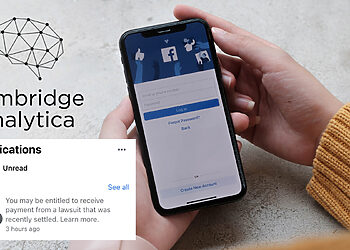You will notice the ads on social media like facebook. Do you think that it’s strange the ads you see are mostly the ones you want? Because they use your browsing history, your interest, and your personal information to show those ads. You are still in their network even if you clear the search history. We will talk about how to make them harder to track you here.
Both Android and iOS have special “Ad ID”. They are linked to the users’ information collected by the data marketers. The better point for a special “Ad ID” is that the information collected can be reset. And can be cleared totally. You will just need to do a few steps on your mobile phone to clear the information.
For Android, Go toSettings > Privacy > Advanced > Ads And then, turn off Opt out of Ads Personalization to stop collecting your information. For iOS, Go to Settings > Privacy > Advertising and turn off Limit Ad Tracking.
If you don’t want to turn it off, you can reset those later. Go to the same steps as above. Press Reset Advertising ID for Android and press Reset Advertising Identifier for iOS. If you reset, the data marketer will need to take your information from the beginning.
Will Strafach, an iOS security researcher said “Cycling Ad Id is the better way than limiting Ad tracking”. “Data collector will grab the ad ID if it can” he continues, “because they can guess users’ fingerprint by using Ad ID. So I’m sure they will love it If we don’t do limitation.”
Ad ID is called as “Advertising ID” in Android and “Identifier for advertiser” in iOS. Apple started requiring that advertisers use only the IDFA in 2013, and Google began mandating advertiser use of its AAID in 2014. Before that time, Mobile Ad Trackers can freely grab personal information including permanent ID (Serial Number, Wi-Fi network, Mac Address) of the devices. Advertisers utilize permanent ID as an Ad ID but the problem is that they are permanent. So users are impossible to escape from ad tracking at that time.
Now Ad ID becomes changeable IDs but these changeable IDs still cannot be the solution. While Apple and Google have increasingly limited what apps collect for advertising purposes, those other hardcoded IDs still exist, and some apps have legitimate reasons to collect them. But this access also creates a temptation to keep using device numbers or other permanent attributes for ad tracking.
“Changeable IDs are not perfect solutions. Their aim is to give the users to control the ads but they only give the perception of the control.”says Lukasz Olejnik, an independent cybersecurity adviser and research associate at Oxford University’s Center for Technology and Global Affairs. “For the system to work, apps and ad networks need to honor the agreements about only collecting ad IDs and not re-sharing them. And if the agreements aren’t fully enforced, apps and ad networks may be tracking users through other means.”








